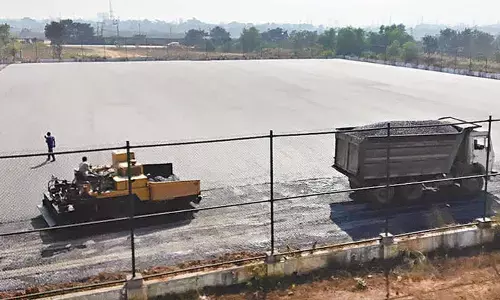How you can prepare for the integration of AI, robotics

The rapid integration of artificial intelligence (AI) and robotics into the workplace is reshaping the future of work. This technological evolution is not just a trend but a transformative force that is redefining job roles, workflows, and even entire industries. According to a report by McKinsey Global Institute, by 2030, approximately 14% of the global workforce may need to switch occupational categories as a result of automation and AI. This shift presents both challenges and opportunities, urging HR professionals to adopt proactive strategies to manage the transition smoothly.
As AI and robotics become increasingly integral to business operations, the role of HR professionals is evolving from traditional personnel management to being strategic enablers of change. The World Economic Forum predicts that by 2025, machines will perform more than half of all current workplace tasks, compared to 29% in 2018. This acceleration necessitates a paradigm shift in HR policies, from workforce planning and recruitment to employee training and development. HR must embrace these technologies to foster an adaptive, resilient, and future-ready workforce.
The integration of AI and robotics into the workplace is not just about technological advancement but also about managing human capital effectively. A survey by Deloitte reveals that 33% of organizations are already using some form of AI in their HR processes, and this number is expected to grow exponentially. As organizations navigate this complex landscape, HR’s role in balancing technological adoption with human touch becomes increasingly critical. Understanding the implications of these technologies, preparing the workforce for the changes ahead, and ensuring ethical practices are key responsibilities for HR leaders today.
The Role of HR in the Age of AI and Robotics
1. Redefining Job Roles and Responsibilities
The adoption of AI and robotics is altering job roles across industries. HR professionals must anticipate these changes and develop strategies to redefine job descriptions, ensuring that employees are equipped with the necessary skills to adapt. According to a report by PwC, 30% of jobs are at risk of automation by the mid-2030s, with the impact varying by industry and job function. HR’s role will include conducting thorough job analyses, identifying roles that may be affected by automation, and proactively planning for workforce transitions.
2. Reskilling and Upskilling the Workforce
With the rise of AI and robotics, reskilling and upskilling employees have become paramount. A report by the World Economic Forum states that by 2025, 50% of all employees will need reskilling due to the adoption of new technologies. HR must take the lead in developing comprehensive learning and development programs that focus on both technical skills and soft skills, such as critical thinking, creativity, and emotional intelligence, which are essential in an AI-driven world. Collaborating with educational institutions and leveraging online learning platforms can help HR departments provide tailored training programs to bridge the skills gap.
3. Fostering a Culture of Continuous Learning
In the era of AI and robotics, fostering a culture of continuous learning is crucial for organizational success. HR can play a pivotal role in creating an environment that encourages curiosity, innovation, and lifelong learning. This involves implementing policies that support employee development, such as flexible work arrangements for learning, access to online courses, and incentives for skill enhancement. Moreover, HR should promote a mindset that embraces change and values adaptability, helping employees see technological advancements as opportunities for growth rather than threats to job security.
4. Ethical Considerations and Workforce Diversity
The integration of AI and robotics also raises ethical considerations, particularly concerning bias in AI algorithms and its impact on workforce diversity. HR must ensure that AI tools used in hiring, performance evaluations, and promotions are free from biases and promote inclusivity. According to a report by Gartner, 85% of HR leaders are concerned about AI bias, yet only 25% have addressed this issue in their AI strategies. HR departments need to collaborate with technology teams to implement fair and transparent AI systems, safeguarding against discrimination and ensuring that the benefits of AI are accessible to all employees.
5. Redesigning Performance Management Systems
As AI and robotics change the nature of work, traditional performance management systems may no longer be effective. HR must redesign these systems to align with the new realities of the workplace, focusing on outcomes rather than processes. Emphasizing skills development, collaboration, and innovation will be key components of future performance management frameworks. Incorporating AI-driven analytics can help HR professionals gain deeper insights into employee performance, identify skill gaps, and tailor development plans to individual needs.
6. Enhancing Employee Experience through AI and Robotics
AI and robotics can significantly enhance the employee experience by automating repetitive tasks, enabling employees to focus on more meaningful work. HR can leverage AI-driven tools to improve various aspects of employee experience, from recruitment and on boarding to engagement and retention. For instance, AI chatbots can provide personalized support for employees, answer HR-related queries, and streamline administrative processes. By embracing these technologies, HR can create a more engaging, efficient, and satisfying workplace for employees.
Preparing for the Future
As AI and robotics continue to evolve, HR’s role will be more critical than ever in shaping the future of work. By proactively preparing for these changes, HR can ensure that organizations remain competitive and resilient in the face of technological advancements. This involves adopting a forward-thinking approach to workforce planning, investing in employee development, and fostering a culture of innovation and inclusivity. The future of work is not just about machines; it’s about people. By placing human capital at the center of technological integration, HR can lead organizations toward a successful and sustainable future.
The integration of AI and robotics into the workplace is inevitable, and its impact on the future of work is profound. HR professionals must embrace these changes and prepare for a new era of work, where technology and human capital coexist harmoniously. By redefining job roles, reskilling the workforce, fostering continuous learning, addressing ethical concerns, and enhancing employee experience, HR can lead the way in navigating the challenges and opportunities of an AI-driven world. The future of work is here, and HR is at the forefront of shaping it.
(The author is Director & Co-founder, iXceed Solutions)












